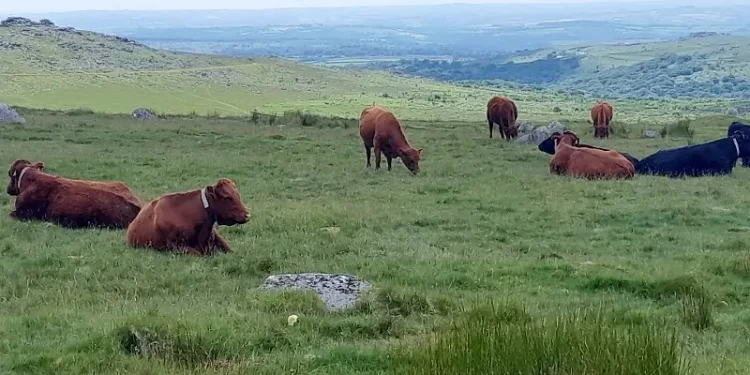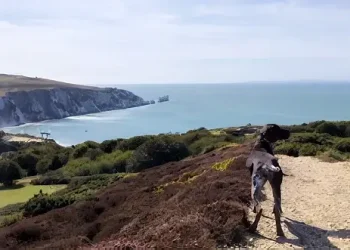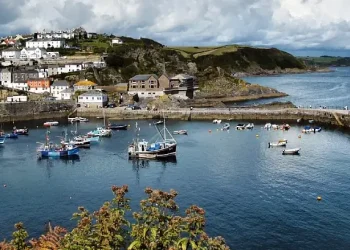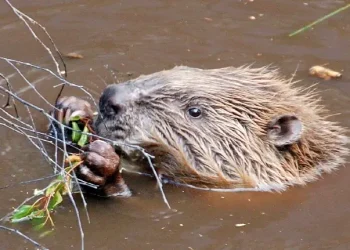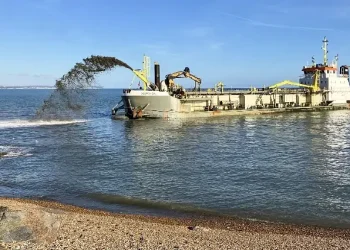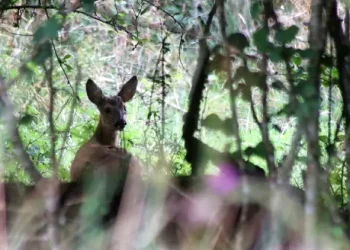South West Lakes Trust is pioneering innovative woodland management techniques in Burrator Forest, Devon, to protect 353 hectares of mixed woodland from livestock and wildlife damage.
This initiative combines traditional and modern methods, including GPS-enabled virtual fencing collars for cattle and the use of Eurasian beavers, to promote sustainable forestry practices.
Innovative Approaches to Woodland Management
The South West Lakes Trust has embarked on a comprehensive strategy to safeguard Burrator Forest from the detrimental effects of livestock grazing and wildlife interference.
By integrating traditional fencing with cutting-edge technology like GPS-enabled virtual fencing collars for cattle, the trust aims to protect sensitive woodland areas without restricting overall livestock movement.
This approach not only reduces physical barriers but also minimizes maintenance costs.
Collaborative Efforts Yielding Positive Results
Collaboration with local conservation groups and Artemis Land Management Services plays a crucial role in controlling deer and grey squirrel populations, which are known for causing significant tree damage.
Additionally, sheep’s fleece mulch mats are being trialed as natural deterrents against deer and voles. These mats require special treatment and licensing for use beyond farms, showcasing an innovative use of traditional farming by-products.
Economic Implications
- Burrator Forest lost £5,500 worth of conifer trees due to livestock grazing over 18 months (2024-2025).
- The trial of 50 GPS-enabled Nofence collars on cattle in 2024 was successful, leading to the purchase of an additional 50 collars in 2025.
- The integration of virtual fencing technology potentially reduces costs associated with physical barriers.
The Role of Eurasian Beavers
Eurasian beavers have emerged as unexpected allies in woodland management at Burrator Forest. Their natural behavior helps control willow growth while improving reservoir vegetation conditions for recreational angling.
This ecological benefit reduces the need for costly human interventions like thinning willow growth, demonstrating how wildlife can positively influence both conservation efforts and leisure industries in the UK.
Insights from Industry Leaders
Nicola Morris, Head of Environment at South West Lakes Trust, highlights the practical challenges faced:
“We planted those trees without guards… it can be really difficult.” She praises beavers as “doing a really good job,” emphasizing adaptive management based on field observations.
Local conservation groups support integrated approaches combining fencing, culling, and innovative deterrents.
Additional Reading
In a Nutshell
This case study exemplifies how innovative strategies can balance environmental conservation with agricultural practices.
By integrating traditional methods with modern technology like virtual fencing and leveraging natural solutions such as Eurasian beavers, South West Lakes Trust sets a precedent for sustainable woodland management that benefits both local communities and ecosystems.
Discover more of More of Todays Top Breaking Government News Stories!
Sources: UK Government, South West Lakes Trust, Forestry Commission, and Dartmoor Preservation Association.
Prepared by Ivan Alexander Golden, Founder of THX News™, an independent news organization delivering timely insights from global official sources. Combines AI-analyzed research with human-edited accuracy and context.



